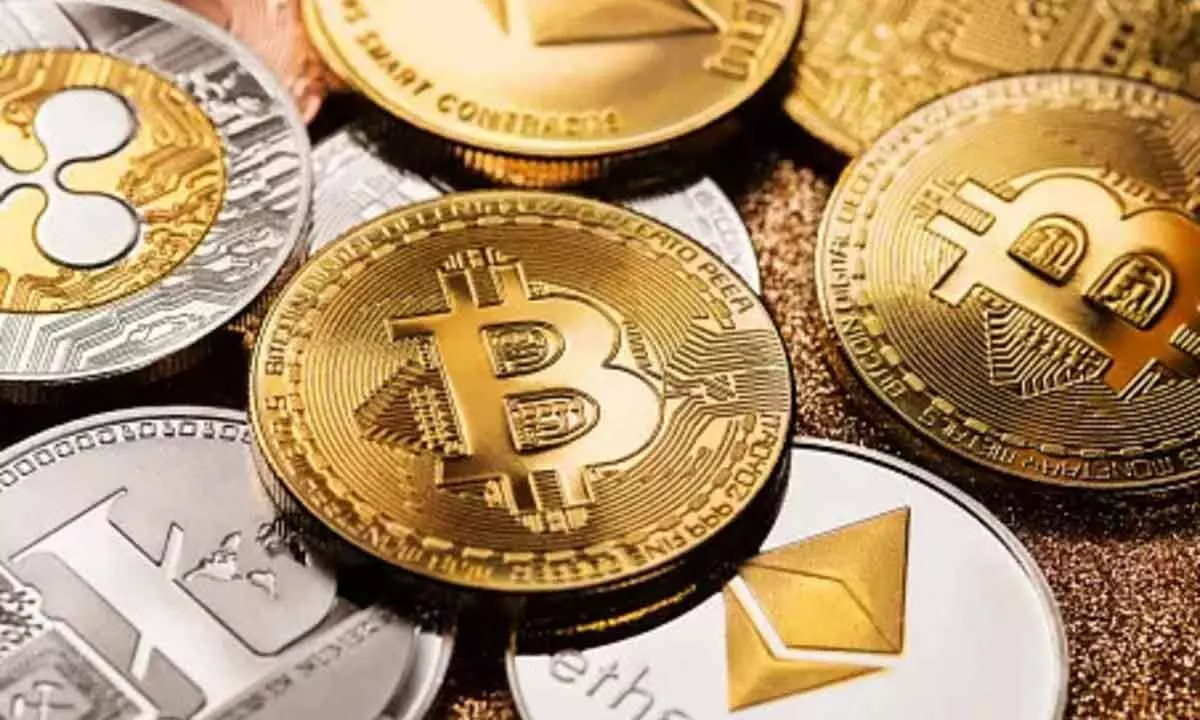Bitcoin, cryptocurrencies and the painful story of insane investments
The sudden collapse of FTX, the world’s 3rd largest cryptocurrency exchange, again proves that private digital currencies have no intrinsic value, and are obviously not safe for sane investors!
image for illustrative purpose

On February 14, this year, I wrote in my BizyLife column on the urgent need for a worldwide ban on cryptocurrencies as they carried no underlying value. I also made it amply clear that encouraging cryptocurrencies would tantamount to encouraging daylight robberies. But I did not expect at that time that I would be forced to write about the cryptocurrencies and their uselessness again in such a short period. The reason is simple. Bahamas-based FTX, the world's third largest cryptocurrency exchange, collapsed like a pack of cards and filed for bankruptcy. And its founder Sam Bankman-Fried lost his multibillion dollar wealth overnight.
To make a long story short, Bankman-Fried, a Massachusetts Institute of Technology (MIT) graduate, founded FTX in May 2019. Short for 'Futures Exchange', FTX registered a rapid growth and became the world's third largest crypto exchange by volume with over one million users within three years. Its valuation also skyrocketed to $32 billion by February 2022 when it raised $400 million in Series C funding. Changpeng Zhao, who owns world's largest crypto exchange Binance, was the first investor in FTX.
He put in $100 million for a 20 per cent stake in FTX soon after it was founded. Softbank, Sequoia Capital and a host of others also invested in the platform. With this, Bankman-Fried's wealth also soared to $26 billion before falling to $10.5 billion in October 2022. But these glitzy numbers did not last long as it was found that FTX diverted massive amounts of investors' funds to Alameda Research, a trading firm floated by Bankman-Fried before FTX. Alameda Research in turn used these funds to trade on FTX, thereby fuelling volume growth on the exchange. When this came to light, FTX collapsed and filed for bankruptcy as investors started withdrawing funds from their accounts on the exchange.
On November 8, when the FTX crisis erupted, Bankman-Fried's net worth plummeted by a staggering 94 per cent to $991 million, according to the Bloomberg Billionaires Index. And three days later on November 11, he lost everything and became penniless on the index. He lost nearly $10 billion in a matter of four days and that's also a record. Interestingly, no one has seen such a fall in wealth in such a short span. Furthermore, he founded the exchange when he was 27 years of age, saw his wealth skyrocket to $26 billion in two years and lost everything soon after he turned 30! What a roller coaster ride!?
But the fallout is much bigger. Post the FTX crisis, the total market capitalisation of cryptocurrencies nosedived by as much as 70 per cent to $763 billion from a peak of $2.5 trillion, or nearly equal to the size of India's economy, in May 2021. That means cryptocurrency investors lost $1.74 trillion in notional wealth. That's a lot of money, isn't it? Bitcoin, the first digital currency that spawned crypto mania in the world, also lost heavily. Its price sank to around $15,000 from a high of $69,000 a year ago. On Sunday, BTC, as bitcoin is known in short form, was trading at $16,664 apiece. Its market capitalisation crashed to $319 billion now from as high as above $1 trillion in November last year.
The turmoil in the cryptocurrency market post the FTX crisis, proves once again beyond doubt that cryptocurrencies are not the game for sane investors. It's nothing short of insanity if one invests in these digital assets. Otherwise, how can we explain the way FTX founder Sam Bankman-Fried has lost his entire wealth in a matter of a few days?
Frankly speaking, the Reserve Bank of India (RBI), India's central bank, did the right thing by not recognising digital currencies including Bitcoin. It has all along argued that private cryptocurrencies have no value whatsoever and have no place in any economy. The Narendra Modi government did a clever thing by imposing 30 per cent tax on profits from cryptocurrency investments. Besides, there is also one per cent TDS (tax deducted at source) on all the cryptocurrency transactions. These measures made Indians think twice before investing in digital assets. Therefore, investments into digital assets came down drastically in India. Otherwise, many more people would have lost their hard-earned money in the current crypto meltdown.
Furthermore, RBI is also gearing up to launch its own digital rupee - Central Bank Digital Currency (CBDC). It has already rolled out a pilot project for this. But it's to be seen how effective this digital rupee will be.
Anyway, I would like to put on record again that blockchain as a technology is a game changer for the world in many ways. But blockchain-spawned cryptocurrencies were not, are not and will never be worth a penny. They are simply ponzi schemes of monster proportions. It's time to act fast and curb them before millions of others lose their hard-earned money. Banning private digital currencies across the world is the only way to control the menace! Is anyone listening?

